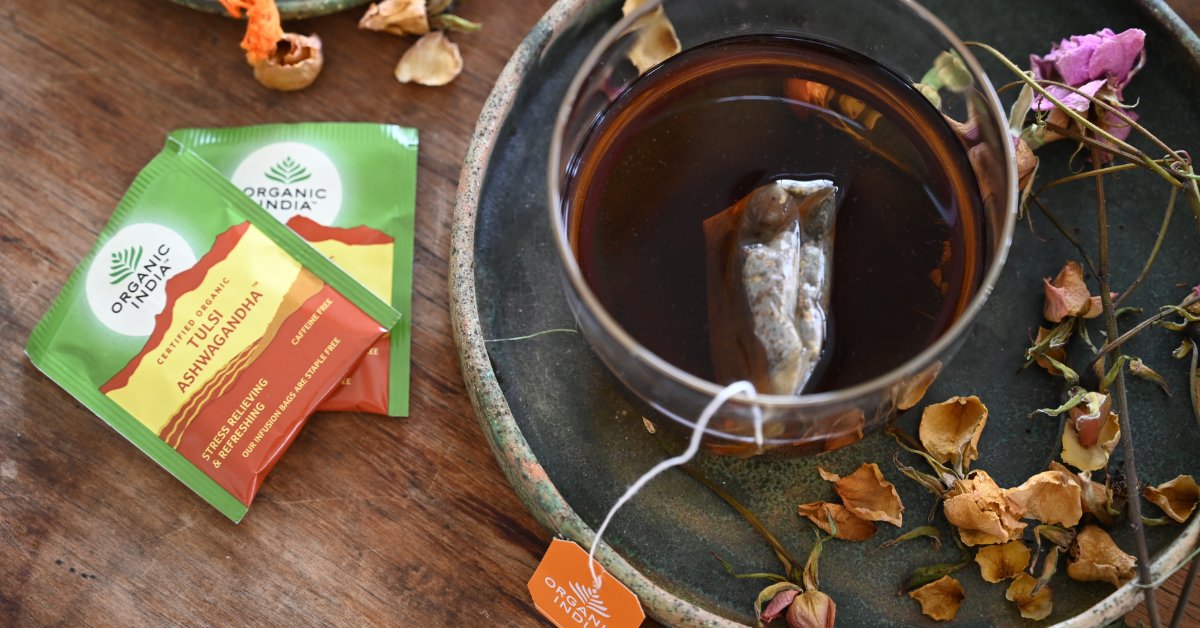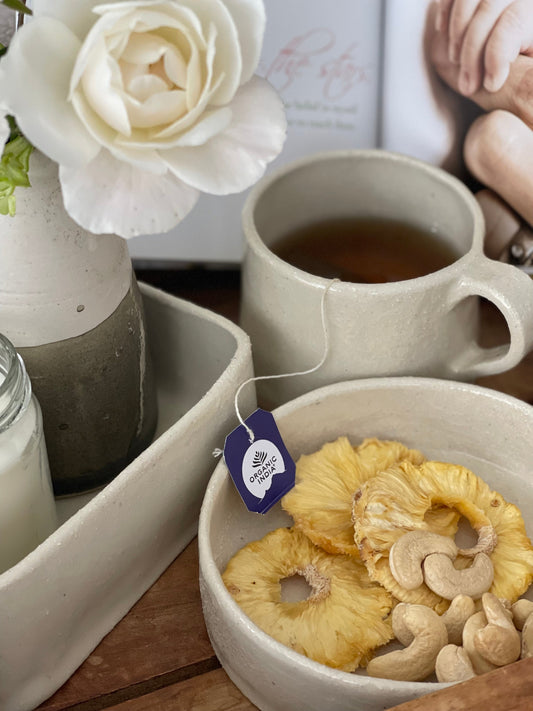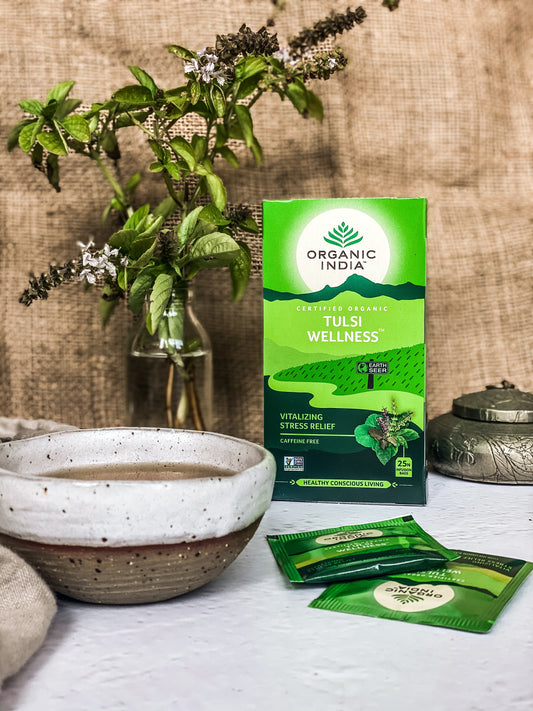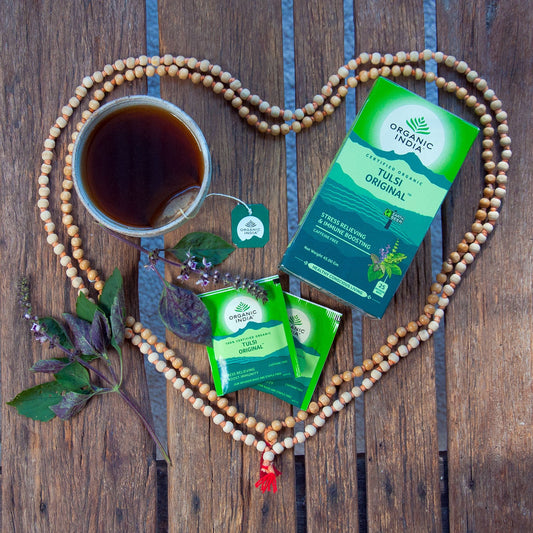Turmeric, traditionally called by its Sanskrit name Haridra, is a jewel of Indian cuisine and lifestyle, and its copper-gold colour is reflective of the cultural vibrancy of India’s life, celebrations, and clothing. This amazing plant is used in countless dishes and rituals, eaten by itself as natural medicine, and prescribed by Ayurvedic doctors who have long recognised turmeric’s healing qualities. More recently, both Eastern and Western scientific researchers have been looking into what makes turmeric specifically able to empower and feed the immune system.
If you visit an Ayurvedic practitioner, depending on your individual health profile (or dosha), turmeric may be offered as a way to help balance the qualities of your mind-body-spirit type, known as your dosha. If your immune system is lagging, turmeric may be the first thing on your shopping list to help restore it.
The Quick Science on Turmeric
Turmeric, a member of the ginger family, features a primary active ingredient called curcumin. What we commonly call turmeric is actually a biologically active polyphenolic compound (an antioxidant packed with nutrients) derived from the rhizomes of Curcuma longa Linn (the plant’s scientific name). Rhizomes are the parts of plants that send out roots and shoots from its nodes. Polyphenols have been scientifically shown to promote immunity to foreign pathogens by a number of means.
To understand how any plant works nutritionally, we first take a look at the cells, the smallest structural and functional units of our bodies. Cells contain receptors that are able to lock together with certain nutrients. Different immune cells have multiple types of polyphenol receptors that recognize and allow cells to unite with polyphenols — such as those in turmeric. Polyphenols are micronutrient antioxidants known to support health in every system of the body.
The process of cellular exchanges of information and nutrients is the key to activating the body’s immune responses. Researchers have reported that the polyphenols in curcumin can create beneficial epigenetic changes in cells. This means that nongenetic influences can change your genes to address intestinal immune responses, allergies, and much more.
In the last 20 years or so, scientists have shown how curcumin, turmeric’s active ingredient, works. They reported that it acts as a potent agent that bolsters the immune system in a variety of ways. It activates T cells, B cells, macrophages, neutrophils, natural killer cells, and dendritic cells — all of which are used to fight “foreign invaders” that the body deems to be threatening. Plus, curcumin has an anti-inflammatory effect, which helps the immune system from becoming overwhelmed.
Ways to Take Your Turmeric
In India, a common household practice is to add extra turmeric into the diet during periods of stress, flu, or low energy, and if there’s any inflammation. As a spice, turmeric has been the prize of Indian cuisine, dating back at least to 3000 B.C.E. To the Western world, however, turmeric was relatively unknown until the Middle Ages. It wasn’t until the 13th century that Arabian traders introduced the plant to Europe, and it became known as “Indian saffron.”
Ayurvedic doctor Priya Punjabi explains that the taste of turmeric is bitter and pungent — two qualities that supply heat to the body, preparing it for a natural cleansing process. Punjabi noted that people can add turmeric to food, in cooking, or consume the powder with amounts from a quarter to one teaspoon in warm water or warm milk, adding honey for taste.
Turmeric is used traditionally in Ayurveda to balance all three doshas — Vata, Pitta, and Kapha — but in excess, it can aggravate Pitta and Vata, so it’s wise to read up on your personal dosha or visit an Ayurvedic practitioner for therapeutic use. Dr. Punjabi noted that anything used inappropriately, even that which is natural and organic, may potentially create side effects, so caution and expert advice is always needed when taking greater amounts of any food, herb, or spice.
Turmeric: One of the Immune System’s (and Chef’s) Best Friends
Turmeric remains one of the most studied botanicals in modern science, not only for the immune system, but for all of its other health benefits. With 5,600 peer-reviewed studies, hundreds of distinct beneficial physiological effects, and hundreds of potential preventive and therapeutic applications, turmeric keeps researchers busy identifying what makes this plant so valuable that Ayurvedic doctors and patients have cherished it over the past several thousand years. Turmeric has traditionally been used to support digestive function, heart health, joint and muscle health, and of course, a healthy immune response.
One of the best ways to get your feet wet with this amazing plant is to simply make yourself a cup of tea, sprinkle turmeric on your next dish while cooking, use it to give your rice a beautiful and nutritious golden hue, or include a moderate amount as an ingredient for your smoothies or vegetable juices.












